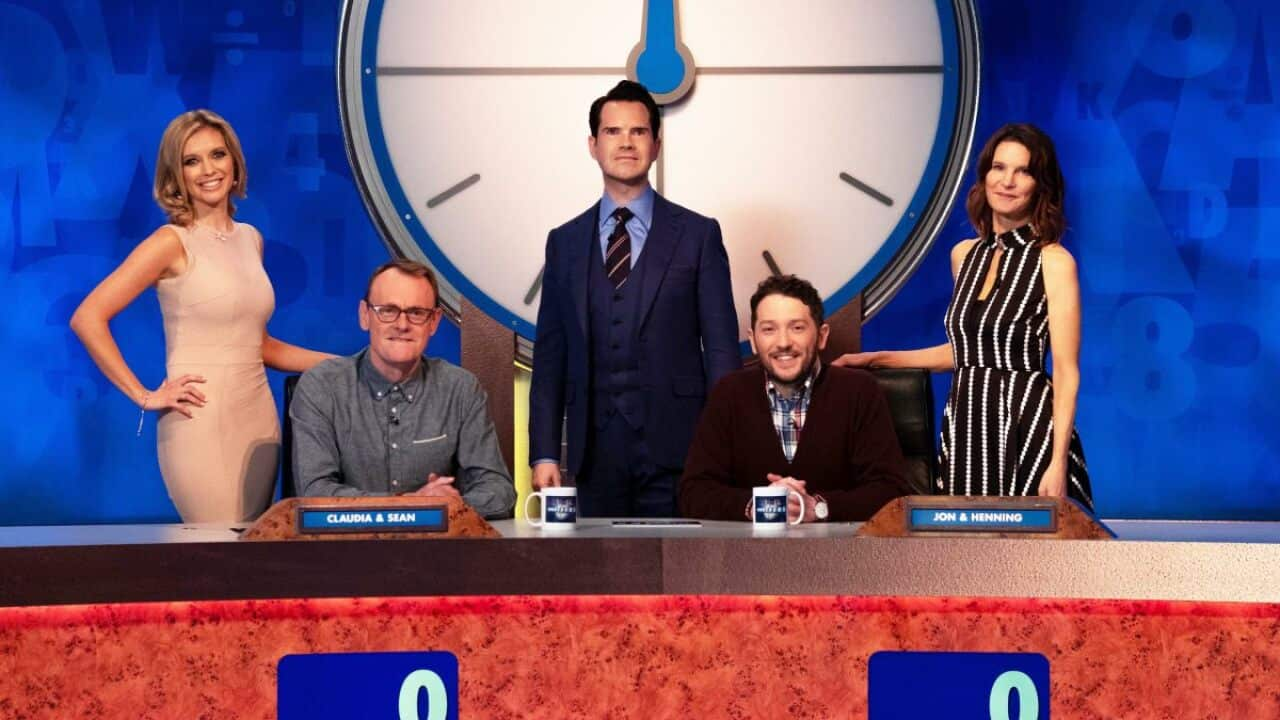There’s a moment early in the first episode of Dead Lucky where Detective Grace Gibbs (Rachel Griffiths) – who we’ve already seen sent to anger management, so we know she’s the type to take things personally – is sent to a convenience store that’s just been robbed by a gun-toting criminal. It’s a scene that seems to be sending the story down a well-recognised path: the criminal has a serious past as a serious threat, and a number of fellow cops, including constable Charlie Fung (Yoson An), want to get in on the hunt.
But Dead Lucky isn’t the kind of cops and robbers chase where the bad guy gets to say things to his nemesis like “we’re not so different, you and I”. It also keeps an eye on the victims of crime, most notably Mani (Mojean Aria), the Iranian convenience store clerk who had a gun shoved in his face. He and his foreign student friends, especially his would-be musician girlfriend Bo-Lin (Xana Tang) are discovering that life in Australia isn’t exactly cheap, and that making money off the books isn’t the safest way to go about it. Crime stories are the social fiction of today. That might seem a stretch, what with plenty of on-screen crime focusing on whodunnits that are little more than a detective glaring at a small circle of suspects until one of them cracks. But crime stories are how we take stock of how our society operates: by looking at those who live – or fall – between the cracks, we get to see how the system looks from the outside.
Crime stories are the social fiction of today. That might seem a stretch, what with plenty of on-screen crime focusing on whodunnits that are little more than a detective glaring at a small circle of suspects until one of them cracks. But crime stories are how we take stock of how our society operates: by looking at those who live – or fall – between the cracks, we get to see how the system looks from the outside.

Dead Lucky stars Yoson An and Rachel Griffiths Source: SBS
Crime stories extend beyond the Agatha Christie school of whodunnits, with stories that look outwards and use society as their canvas. Not to mention that crime itself is an assault on the social order; any serious examination of crime is bound to end up an examination of society. Almost a century ago, hard-boiled writers like Dashell Hammett and Raymond Chandler put their private investigators out on the streets and had them wander from high society to low tracing the connections between them as they worked their cases. These days it’s almost expected that quality crime novels are going to be as much about the society they’re set in as they are about solving a mystery.
Phillip Kerr’s Bernie Gunther novels explore Germany through the Nazi era and beyond through the eyes of a hard-bitten cop; Elmore Leonard’s crime novels centred on a certain kind of hapless criminal that could only get by in America’s underbelly. Dennis Lahane “the crime novel is where the social novel went. If you want to write about the underbelly of America, if you want to write about the second America that nobody wants to look at, you turn to the crime novel.” Whether you’re reading Richard Price, Stieg Larsson, or Australia’s Shane Maloney, you’re reading crime authors who use crime as a way to talk about the society around them. Television clearly has more than its fair share of cosy whodunnits ranging from Murder She Wrote to Midsomer Murders. But the The Wire is still seen as one of the greatest television series ever not because it was a gritty crime drama about drug dealing in a mid-sized US city, but because it went on to show the way that drug dealing – and society’s responses to it – shaped that city and the lives of everyone who lived there.
Television clearly has more than its fair share of cosy whodunnits ranging from Murder She Wrote to Midsomer Murders. But the The Wire is still seen as one of the greatest television series ever not because it was a gritty crime drama about drug dealing in a mid-sized US city, but because it went on to show the way that drug dealing – and society’s responses to it – shaped that city and the lives of everyone who lived there.

Source: SBS
Almost all the great dramas of the golden age of television take crime as a launchpad to examine wider issues, from Breaking Bad’s meth labs to Mad Men’s Don Draper reinventing himself via identity theft to Deadwood examining how the very basis of American society itself was built on crime. The Sopranos Mobsters speak for themselves. Whenever television wants to talk about how we live now, it ends up talking about crime. Top of the Lake is a murder mystery; Big Little Lies has a crime at its core; Atlanta is about a low-level rapper who pays his way by selling drugs. It’d almost be easier to list the shows that aren’t based on crime; even the characters in Seinfeld ended up in jail.
So when Dead Lucky tackles overseas students being underpaid (“And if they complain, we’ll have them deported for breaching their student visas” says one of their employers) and focuses as much on their struggles as it does on the hunt for a cop killer – though the two quickly become intertwined – it’s part of a long and proud tradition in crime fiction. A good crime story tells us whodunnit: a great crime story tells us why – and if you want to know why, you have to look at society.
Four-part series Dead Lucky reaches its finale this Wednesday at 9.30pm on SBS. You can watch the series from the beginning at :




